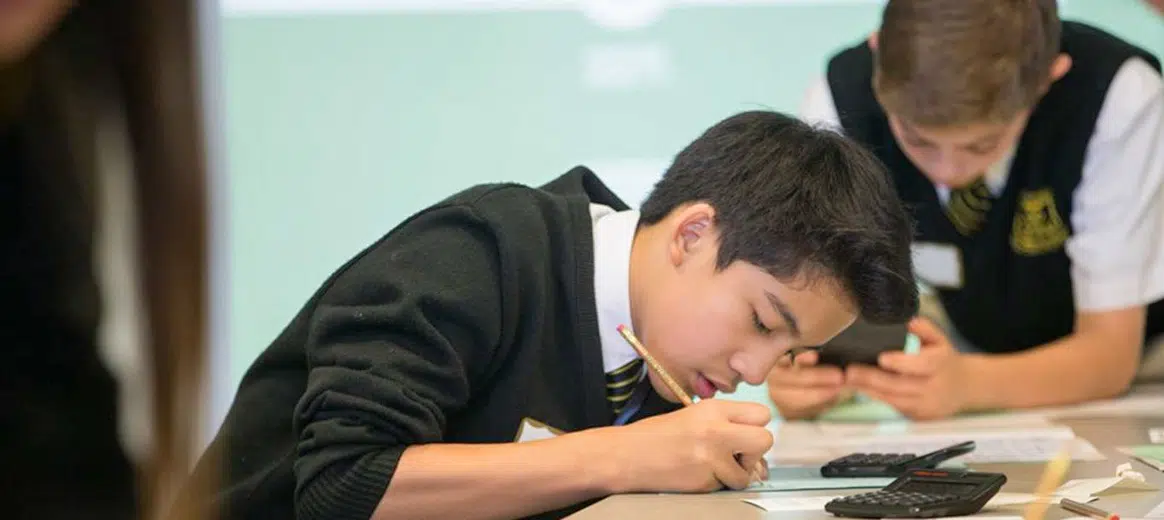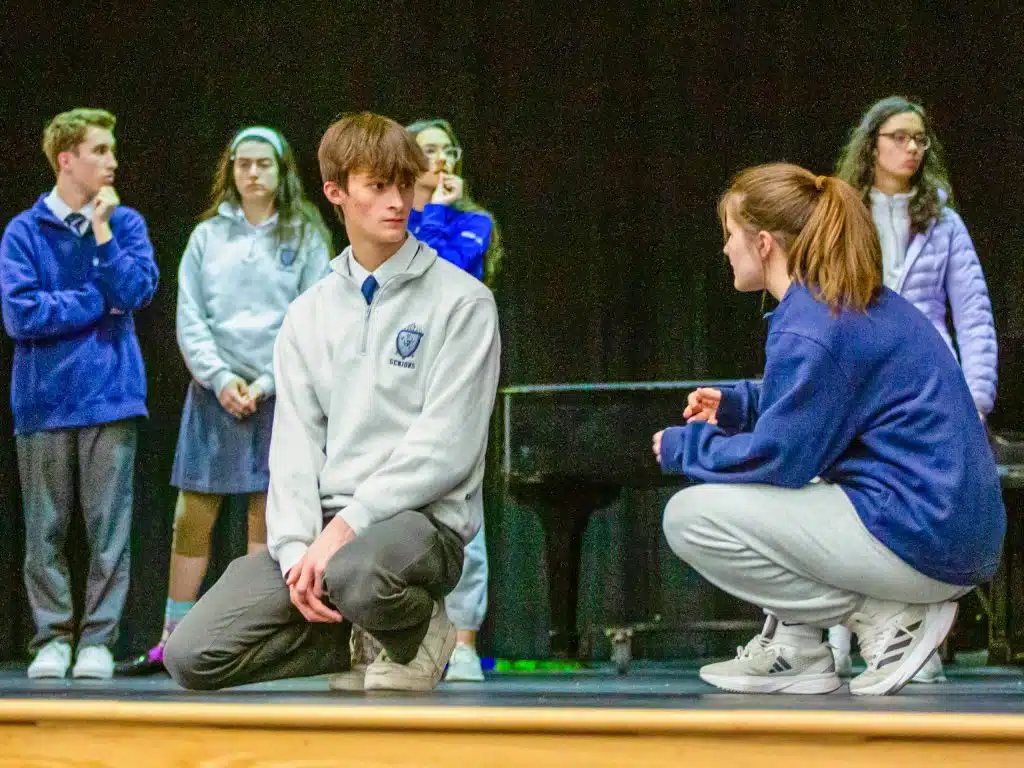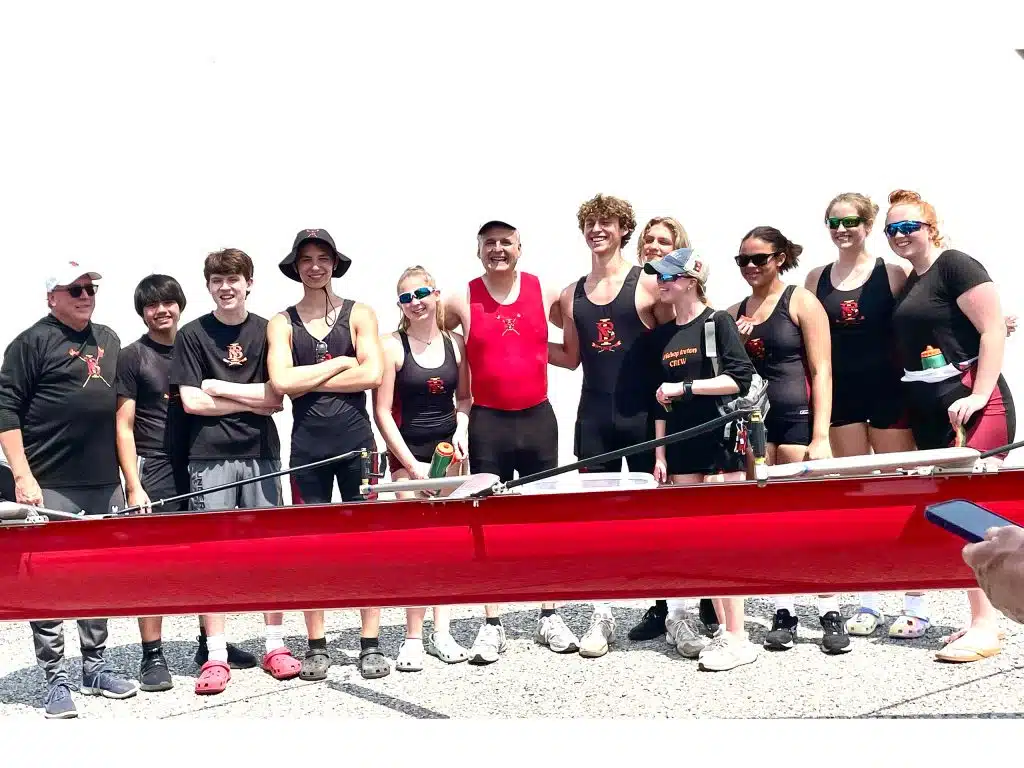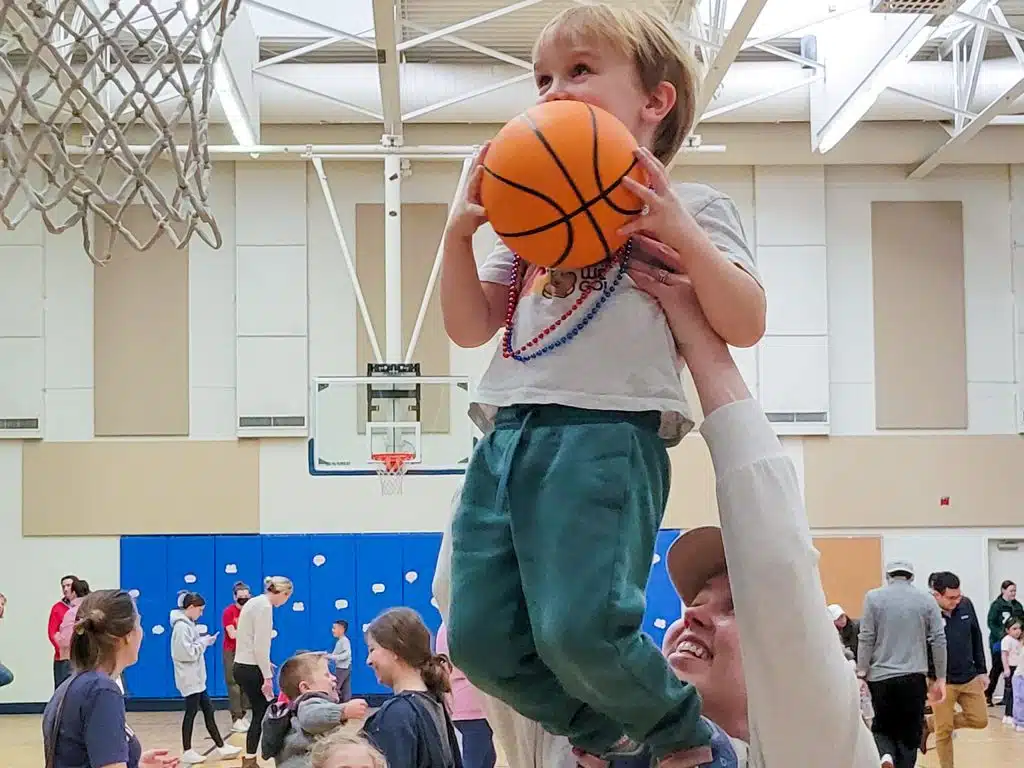Paying bills, budgeting and taking out a loan is a ton of fun. At least, that’s what middle school students think after spending a day at Junior Achievement Finance Park in Fairfax. For weeks ahead of the field trip, students learn about personal finance. Then, their skills are tested at the park.
“They love the day of adulthood,” said Nancy McBride, a teacher at Blessed Sacrament School in Alexandria.
For years, several diocesan schools have participated in the program, which requires “a good bit of preparation” beforehand, said McBride. The Finance Park lessons focus on four basic areas: income; savings, investing and risk management; debit and credit; and budgeting.
“Finance Park has its own curriculum and it fits in beautifully with what they’re learning through the diocesan curriculum,” said Christina Slifko, a teacher at Nativity School in Burke. “It’s showing them how the skills you get in your math class help you figure out your finances.”
On a recent day in her classroom, Slifko taught her students about different types of taxes, including sales tax, prepared food tax, retail tax, income tax and property tax. They differ from state to state, and even from county to county, but the government has to collect money one way or another, she told them. Students then calculated how much tax they would be charged for the cost of a meal or a shopping trip.
McBride has found that the students often are most interested in the lesson on investment vehicles, savings, the stock market and mutual funds. “It really gives them an overview of personal finance,” she said. “It gives them a prism through which to look at some of their near future decisions.”
Slifko feels that more than anything, the Finance Park work facilitates an important conversation.
“I recently read in the Washington Post that a huge percentage of people think they will never pay off their credit card debt and I was amazed at the statistic. (Finance Park) really opens (the students’) eyes to have a better understanding that they are in the driver’s seat.”
On the day they visit the park, students are given a tablet and a specific life scenario: occupation, salary, marital status, and number of kids. They then have to decide where to live, how to get to and from work and how to take care of their family. “It’s a high energy day,” said McBride. “They come away with a deep appreciation for what their parents go through, and how expensive children are. Some of those conversations are just hilarious.”
Beck Voelker, now a freshman at Bishop Ireton High School in Alexandria, attended Finance Park last year, and hopes more middle school students will be able to attend. “I thought it was really fun and interactive,” he said. “It was eye-opening, and it showed a lot more about what to do with money than most people knew at my age.”



